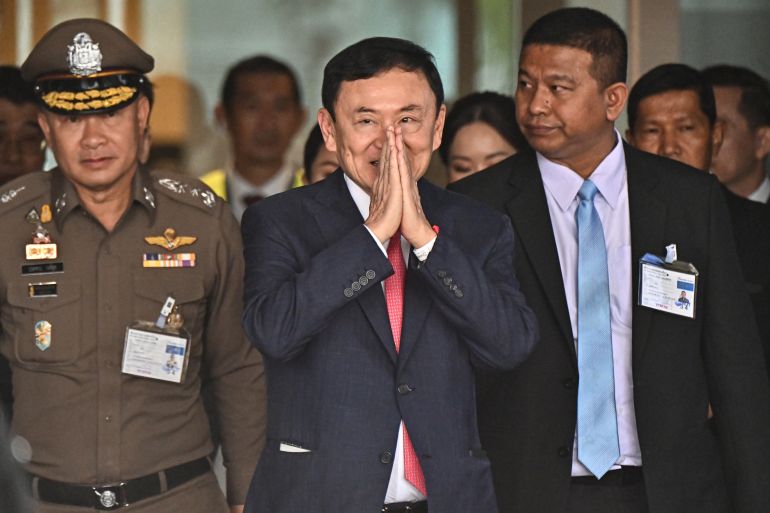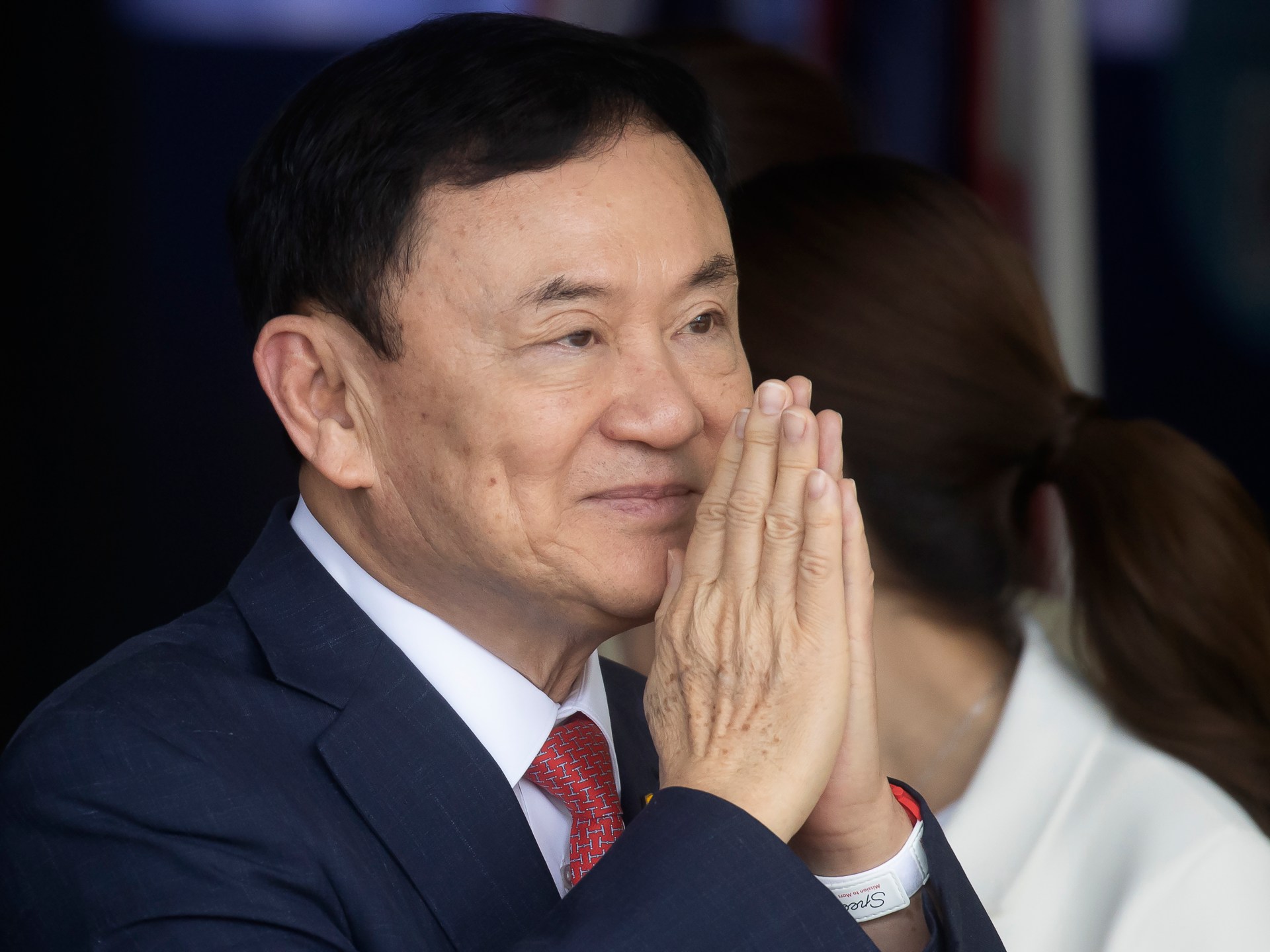Former Thai PM Shinawatra Receives 8-Year Jail Sentence Upon Return to the Country After 15 Years

Former Thai PM Shinawatra Receives 8-Year Jail Sentence Upon Return to the Country After 15 Years
In a landmark verdict that has sent shockwaves through Thailand‘s political landscape, former Prime Minister Thaksin Shinawatra has been handed an 8-year jail sentence upon his long-awaited return to the country after 15 years in self-imposed exile. The ruling, which was met with a mix of jubilation and condemnation, marks a significant development in the ongoing saga that has captivated the nation’s attention for over a decade.
Shinawatra, a polarizing figure who once wielded immense influence in Thai politics, stepped down as prime minister in 2006 amid allegations of corruption and abuse of power. His departure was followed by a series of tumultuous events that included a military coup, multiple governments, and a growing divide between his supporters and detractors.
The verdict, delivered by the Supreme Court, found Shinawatra guilty of charges related to abuse of power and embezzlement during his time in office. The former leader’s legal team had vehemently contested the charges, arguing that they were politically motivated and lacking in substantial evidence. However, the court’s decision has firmly established a precedent for holding even the highest-ranking officials accountable for their actions, signaling a potential shift in Thailand’s approach to political transparency and accountability.
Shinawatra’s return to Thailand was a momentous occasion, as his supporters welcomed him with open arms, while his opponents viewed his comeback with suspicion and concern. Thousands of his followers gathered outside the courthouse, waving flags and holding banners that proclaimed his innocence. On the other side, protesters critical of his legacy took to the streets, demanding justice for what they perceived as his role in perpetuating corruption and inequality.

The former prime minister’s journey back to his homeland was fraught with uncertainties and drama. Having lived in various countries to avoid the legal charges against him, Shinawatra’s decision to return was seen by some as a bold move to confront the allegations head-on. His arrival was met with a heavy security presence, underscoring the tense atmosphere surrounding the proceedings.
Throughout the trial, the prosecution presented a series of evidence aimed at demonstrating Shinawatra’s involvement in corrupt practices during his time in office. They argued that his government’s policies had favored his business interests and those of his allies, leading to an unfair distribution of resources and opportunities. This alleged misuse of power, the prosecution contended, had contributed to the deepening socio-economic divisions within the country.
Conversely, the defense argued that the charges against Shinawatra were part of a larger political vendetta orchestrated by his rivals. They maintained that his policies had indeed brought about positive changes for many in Thailand, particularly in the realm of healthcare and rural development. The defense also highlighted his popularity among marginalized communities, emphasizing that the charges against him were a means to undermine his legacy and popularity.

The court’s ruling has ignited a passionate debate about the state of democracy and justice in Thailand. Supporters of the verdict view it as a crucial step toward ending the culture of impunity that has long plagued the country’s political system. They believe that holding leaders accountable, regardless of their status or influence, is paramount for fostering a fair and just society. For these individuals, the conviction represents a turning point in Thailand’s political narrative, one that signals the country’s commitment to upholding the rule of law.
However, critics argue that the trial’s outcome may be influenced by a broader context of political power struggles. They assert that the Thai judicial system, like in many other countries, is susceptible to political pressure and manipulation. Skeptics point to previous cases where legal proceedings seemed to align with the interests of specific factions, raising questions about the objectivity and impartiality of the judiciary.
The verdict’s impact is not confined to Thailand’s borders; it reverberates across the international community. Observers from around the world are closely watching how the country navigates this pivotal moment in its history. The trial’s fairness and transparency have implications for Thailand’s relationships with its global partners, as well as its reputation on the international stage.
As the country processes this landmark verdict, Thailand finds itself at a crossroads. The case of Thaksin Shinawatra underscores the complex interplay between politics, law, and public sentiment. It raises important questions about the nature of justice, the role of accountability, and the prospects for national reconciliation.

Regardless of where one stands on the issue, it is undeniable that the former prime minister’s return and subsequent conviction have injected a renewed sense of urgency into Thailand’s ongoing political discourse. As the nation grapples with its past, present, and future, one thing is certain: the echoes of this verdict will resound for years to come, shaping the contours of Thai politics and society in ways that are yet to be fully understood.



